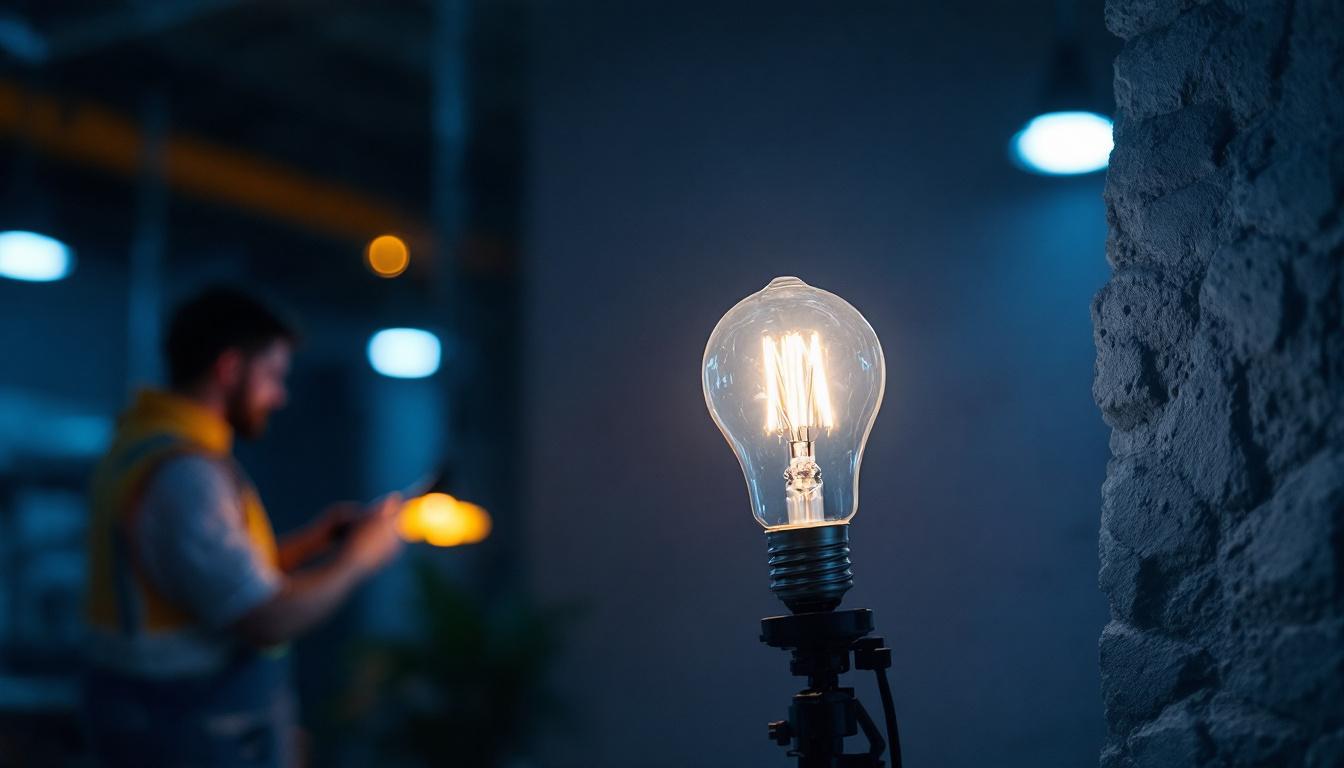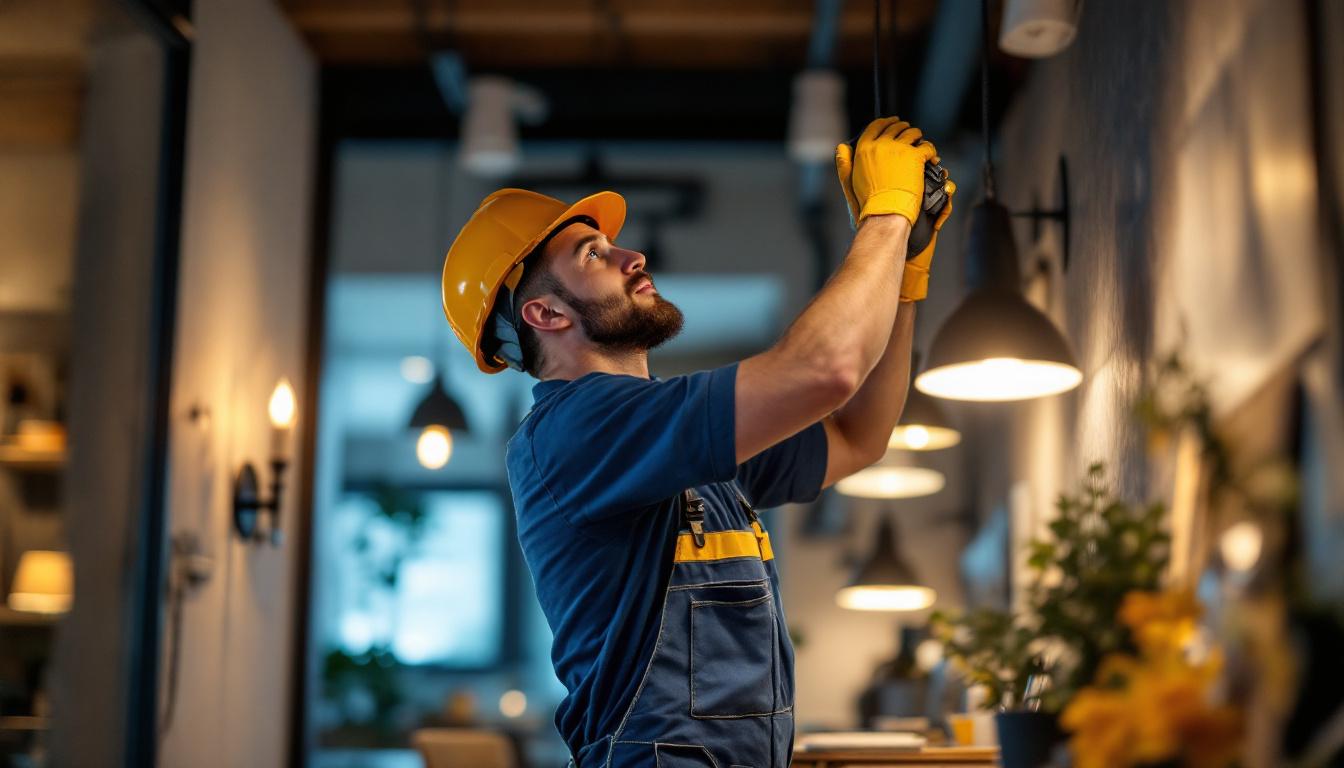
In the realm of electrical installations, the washer outlet is often overlooked, yet it plays a crucial role in ensuring the safe and efficient operation of various appliances. For lighting contractors, understanding the nuances of washer outlets is essential to avoid potential issues that could arise during installation or maintenance. This article aims to provide insights into best practices, common pitfalls, and solutions that lighting contractors can implement to enhance their service quality and client satisfaction.
Washer outlets are specialized electrical receptacles designed to accommodate washing machines and other heavy-duty appliances. These outlets typically feature a 240-volt configuration, which is necessary for the high power demands of these machines. However, the principles that govern their installation and maintenance can also apply to other electrical systems, making it essential for lighting contractors to be well-versed in their functionalities. Proper knowledge of washer outlets not only enhances the efficiency of laundry operations but also contributes to the overall safety and longevity of the appliances involved.
There are primarily two types of washer outlets: the standard 120-volt outlet and the 240-volt outlet. The former is commonly used for smaller appliances, while the latter is specifically designed for larger machines that require more power. The 240-volt outlet is particularly important for modern washing machines, which often come equipped with advanced features such as steam cleaning and high-speed spin cycles that demand higher energy consumption.
Understanding the differences between these outlets is crucial for lighting contractors, as it influences the overall design and layout of electrical systems in residential and commercial spaces. Knowing when to use each type can prevent circuit overloads and ensure compliance with electrical codes. Moreover, the choice of outlet type can also affect the efficiency of the appliance, as using the correct voltage can lead to better performance and reduced energy bills over time.
Despite their importance, washer outlets are often the source of various issues. One common problem is improper installation, which can lead to circuit failures or even electrical fires. Additionally, inadequate grounding can pose significant safety risks, making it imperative for contractors to adhere to best practices during installation. Regular inspections and maintenance are essential to identify potential problems before they escalate, ensuring that the outlet remains safe and functional.
Another frequent issue is the use of extension cords, which can compromise the integrity of the electrical system. Lighting contractors must educate clients about the dangers of using non-compliant cords and encourage the installation of permanent outlets instead. Furthermore, it’s important to highlight the significance of using the correct gauge of wire for the specific outlet type, as this can greatly impact the performance and safety of the electrical system. By fostering a deeper understanding of washer outlets and their requirements, contractors can help clients make informed decisions that enhance both safety and efficiency in their homes and businesses.
To avoid the myriad of issues associated with washer outlets, lighting contractors should adhere to established best practices during installation. These practices not only enhance safety but also improve the longevity of the electrical system.
Every region has specific electrical codes that govern the installation of electrical systems, including washer outlets. Familiarity with these codes is essential for lighting contractors to ensure compliance and avoid legal repercussions.
Consulting the National Electrical Code (NEC) is a good starting point, as it provides guidelines that can be adapted to local regulations. By staying informed about changes to these codes, contractors can ensure their installations are up to standard and minimize the risk of future issues. Additionally, being aware of local amendments to the NEC can provide insights into specific requirements that may not be covered in the national guidelines, such as unique grounding practices or specific circuit requirements for residential versus commercial installations.
Investing in high-quality materials is vital for the durability and safety of washer outlets. This includes selecting reputable brands for outlets, wiring, and circuit breakers. Cheap materials may save costs in the short term, but they often lead to long-term problems that can be costly to rectify.
Furthermore, using materials that are specifically designed for heavy-duty applications can enhance the performance of the washer outlet and reduce the likelihood of failures. Lighting contractors should prioritize quality over cost to ensure the safety and satisfaction of their clients. It’s also beneficial to consider the environment where the washer outlet will be installed; for example, moisture-resistant materials should be used in areas prone to humidity or water exposure. This proactive approach not only safeguards the installation but also prolongs the lifespan of the electrical components, ultimately leading to fewer service calls and repairs down the line.
Even with the best practices in place, issues may still arise with washer outlets. Being able to identify and resolve these problems promptly is essential for maintaining client trust and ensuring safety.
When a washer outlet fails, it is crucial to diagnose the problem accurately. Common symptoms include tripped circuit breakers, flickering lights, or appliances that won’t power on. Contractors should be equipped with the right tools to conduct thorough inspections and identify the root cause of the issue.
For instance, using a multimeter can help determine if the outlet is receiving power and if the voltage levels are appropriate. Understanding how to interpret these readings is vital for effective troubleshooting. Additionally, it may be beneficial to check for loose connections or damaged wiring, as these can often be the underlying causes of electrical failures. Regularly scheduled inspections can help catch these issues before they escalate, allowing for proactive maintenance that saves time and resources in the long run.
Grounding is a critical aspect of electrical safety, especially for washer outlets. If an outlet is not properly grounded, it can lead to electrical shocks or equipment damage. Lighting contractors should check the grounding connections during installation and periodically during maintenance checks.
If grounding issues are identified, it is essential to rectify them immediately. This may involve installing a new grounding wire or ensuring that the existing connections are secure and compliant with local codes. Furthermore, understanding the local electrical codes and regulations is crucial, as they can vary significantly from one region to another. Implementing best practices for grounding not only enhances safety but also contributes to the longevity and reliability of electrical systems, ultimately benefiting both the contractor and the client.
client education is a vital component of ensuring the longevity and safety of washer outlets. Lighting contractors should take the time to explain the importance of regular maintenance and proper usage to their clients.
Encouraging clients to schedule regular inspections can help identify potential issues before they escalate. During these inspections, contractors can check for signs of wear and tear, assess the integrity of the wiring, and ensure that the outlet is functioning correctly.
By establishing a routine maintenance schedule, clients can feel more secure in the performance of their washer outlets and reduce the likelihood of unexpected failures.
In addition to inspections, providing clients with clear usage guidelines can help prevent common issues. This includes advising against the use of extension cords, recommending the appropriate appliances for the outlet, and explaining the importance of not overloading circuits.
By empowering clients with knowledge, lighting contractors can foster a sense of responsibility and encourage safer practices in their homes or businesses.
As technology continues to evolve, so too does the landscape of electrical installations. Lighting contractors should stay informed about emerging trends in washer outlet technology to remain competitive and provide the best service to their clients.
One of the most exciting developments in electrical technology is the rise of smart outlets. These outlets can be controlled remotely via smartphone apps, allowing users to monitor energy consumption and manage their appliances more efficiently.
Integrating smart technology into washer outlets can enhance convenience and energy efficiency, making them an attractive option for clients looking to modernize their homes. Lighting contractors should consider offering smart outlet installations as part of their service portfolio.
With an increasing emphasis on sustainability, energy-efficient solutions are becoming more popular among consumers. This includes appliances that use less energy and outlets designed to minimize energy waste.
Lighting contractors can differentiate themselves by staying ahead of the curve and offering energy-efficient options for washer outlets. This not only benefits the environment but also appeals to clients who are conscious of their energy consumption.
Washer outlets may seem like a small component of an electrical system, but their importance cannot be overstated. For lighting contractors, understanding the intricacies of these outlets is essential for delivering high-quality service and ensuring client satisfaction. By adhering to best practices, staying informed about emerging technologies, and educating clients, contractors can avoid common issues and enhance the safety and efficiency of their installations.
As the electrical landscape continues to evolve, lighting contractors who prioritize knowledge and proactive solutions will be well-positioned to thrive in a competitive market. Embracing the challenges associated with washer outlets can lead to greater expertise and a reputation for excellence in the industry.
Ready to elevate your electrical projects with superior lighting products? Look no further than LumenWholesale, where we offer an extensive selection of spec-grade lighting essentials at unbeatable wholesale prices. Say goodbye to middleman markups and hello to high-performance lighting that meets the highest industry standards. Plus, with free shipping on bulk orders, you can stock up on quality lighting without the worry of hidden fees. Don’t compromise on quality or value—visit LumenWholesale today and discover the perfect blend of affordability, quality, and convenience for all your lighting needs.

Discover how the innovative Wall Light LED Strip Shape Rotatable Wall Lamp is revolutionizing bedroom lighting for contractors.

Discover the ins and outs of 200 watt lamps tailored for lighting contractors.

Discover the essential guide for lighting contractors in “Light Heat,” where innovative strategies meet practical solutions.

Explore the transformative impact of switch light switches in the lighting industry.